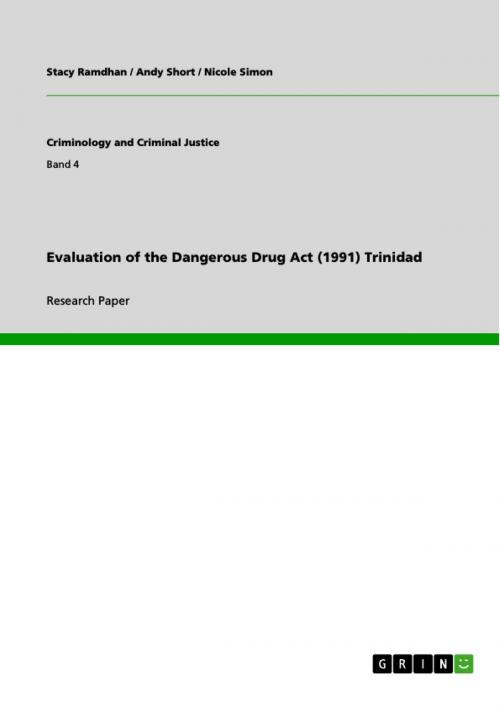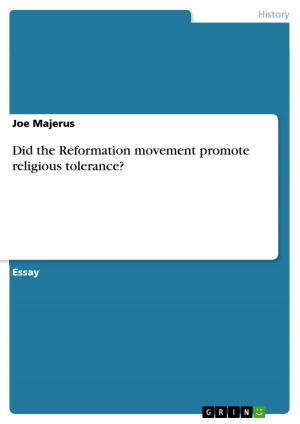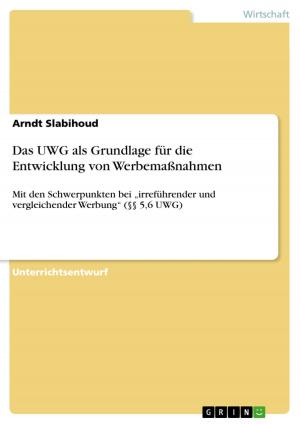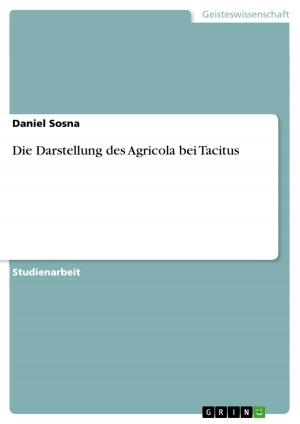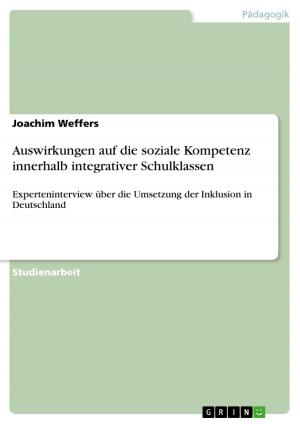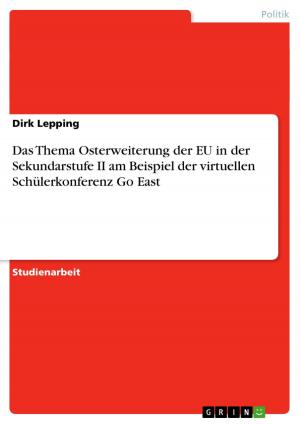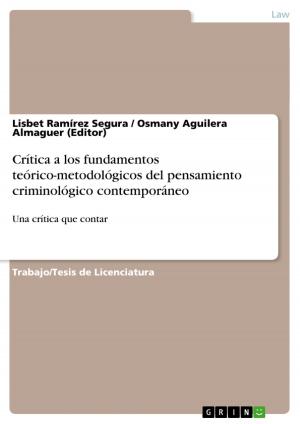Evaluation of the Dangerous Drug Act (1991) Trinidad
Nonfiction, Social & Cultural Studies, Social Science, Crimes & Criminals, Criminology| Author: | Andy Short, Stacy Ramdhan, Nicole Simon | ISBN: | 9783640966639 |
| Publisher: | GRIN Verlag | Publication: | July 25, 2011 |
| Imprint: | GRIN Verlag | Language: | English |
| Author: | Andy Short, Stacy Ramdhan, Nicole Simon |
| ISBN: | 9783640966639 |
| Publisher: | GRIN Verlag |
| Publication: | July 25, 2011 |
| Imprint: | GRIN Verlag |
| Language: | English |
Research Paper (postgraduate) from the year 2011 in the subject Sociology - Law, Delinquency, Abnormal Behavior, grade: A, The University of the West Indies, St. Augustine (-), language: English, abstract: Trinidad and Tobago illicit drug transhipping economy is premised upon the transhipping of cocaine and heroin from Venezuela to markets in Europe and the US and the production of marijuana for local consumption and export. 'There then exist complex multi- realities illicit drug economy operating in Trinidad and Tobago which has over the years developed complex power relations between the licit economy and the illicit drug economy, between the political elites and the illicit drug economy and between officials of the state and the illicit drug economy' (Figueira, 2004). The drug trade is an organised worldwide industry, where suppliers do whatever is necessary to ensure that their trade continues without apprehension of reprisal or conviction. The problems associated with illegal narcotics and narco-trafficking have affected the legal, social, economic, political and psychological fabric of Caribbean societies. The development of the country is distorted when resources have to be channelled from development investments to drug trafficking eradication strategies (Chadee, 1998). Problems associated with substance abuse, production of illicit drugs and drug trafficking cause harm to individuals, families and communities which are reflected in serious problems such as disintegration of the family institution, the decline of community life, poor performance at school and the emergence of violence and intimidation as an acceptable approach to life. The illicit drug activity both trafficking and abuse and it resulting manifestations such as crime, armed violence, money laundering and corruption pose challenges to the overall development of Trinidad and Tobago. Deoseran & Chadee (1997) found that just over 6% of all incarcerated youths in Trinidad and Tobago were placed into juvenile homes for drug related crimes/offences. Currently there has been 914 drug related offence over the 3 months period in 2011. It has also been estimated by the TTPS and CAPA for 2010 there were 4474 drug offences, which has been on a steady increase since the year 2000, on average a total of 5059 cases per year; a total of 50,593 drug offenses over a 10 year period. These figures just allow us to see the nature and the extent of the drug problem that exist in Trinidad. Law enforcement authorities indicate that the presence of cocaine in the country has led to a dramatic increase in criminal activity.
Research Paper (postgraduate) from the year 2011 in the subject Sociology - Law, Delinquency, Abnormal Behavior, grade: A, The University of the West Indies, St. Augustine (-), language: English, abstract: Trinidad and Tobago illicit drug transhipping economy is premised upon the transhipping of cocaine and heroin from Venezuela to markets in Europe and the US and the production of marijuana for local consumption and export. 'There then exist complex multi- realities illicit drug economy operating in Trinidad and Tobago which has over the years developed complex power relations between the licit economy and the illicit drug economy, between the political elites and the illicit drug economy and between officials of the state and the illicit drug economy' (Figueira, 2004). The drug trade is an organised worldwide industry, where suppliers do whatever is necessary to ensure that their trade continues without apprehension of reprisal or conviction. The problems associated with illegal narcotics and narco-trafficking have affected the legal, social, economic, political and psychological fabric of Caribbean societies. The development of the country is distorted when resources have to be channelled from development investments to drug trafficking eradication strategies (Chadee, 1998). Problems associated with substance abuse, production of illicit drugs and drug trafficking cause harm to individuals, families and communities which are reflected in serious problems such as disintegration of the family institution, the decline of community life, poor performance at school and the emergence of violence and intimidation as an acceptable approach to life. The illicit drug activity both trafficking and abuse and it resulting manifestations such as crime, armed violence, money laundering and corruption pose challenges to the overall development of Trinidad and Tobago. Deoseran & Chadee (1997) found that just over 6% of all incarcerated youths in Trinidad and Tobago were placed into juvenile homes for drug related crimes/offences. Currently there has been 914 drug related offence over the 3 months period in 2011. It has also been estimated by the TTPS and CAPA for 2010 there were 4474 drug offences, which has been on a steady increase since the year 2000, on average a total of 5059 cases per year; a total of 50,593 drug offenses over a 10 year period. These figures just allow us to see the nature and the extent of the drug problem that exist in Trinidad. Law enforcement authorities indicate that the presence of cocaine in the country has led to a dramatic increase in criminal activity.
